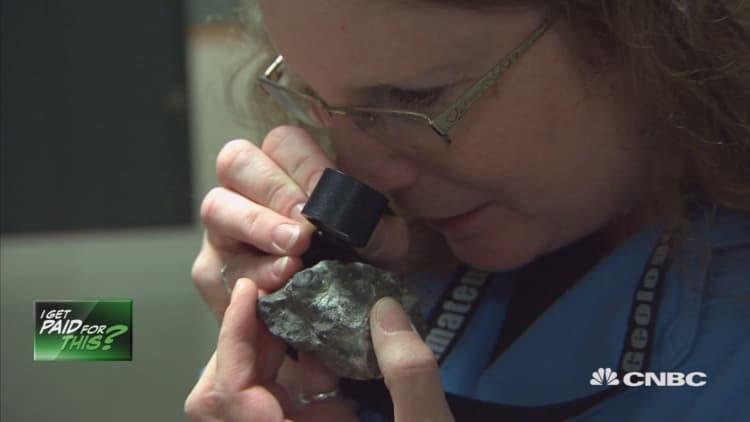
Lisa Amati likes to play in the dirt and as the New York State paleontologist, she gets paid to do it.
"Discovering new fossils is absolutely fabulous. When you first find them in the field you look at it and you realize I don't know what this is…and then you realize this is something that's completely new to science," Amati said in an interview with CNBC's "Power Lunch."
Amati is based at the New York State Museum and is surrounded by over one million fossil specimens that keep her busy on a daily basis.
"Those need to be catalogued, data-based, photographed. They need to be labeled, and we need to take care of them. Each of us has different types of fossils that we study. And we take time out of our day to study those fossils and try to learn more about them," she said.
"The significance of it is we can understand how organisms change over time, and we can understand how changing environments can affect the different types of organisms that live in an area."
While Amati enjoys her work at the museum, going into the field and finding new fossils gives her a special thrill. As does naming them.
"Unlike when you study dinosaurs, you have a little bit more a latitude for what you can name your fossils. Two of my colleagues have an entire paper and in the paper every single new species that they named is named after a cartoon dog," she said.
When asked whether she has a favorite fossil, Amati responded, "I love all fossils, equally."


